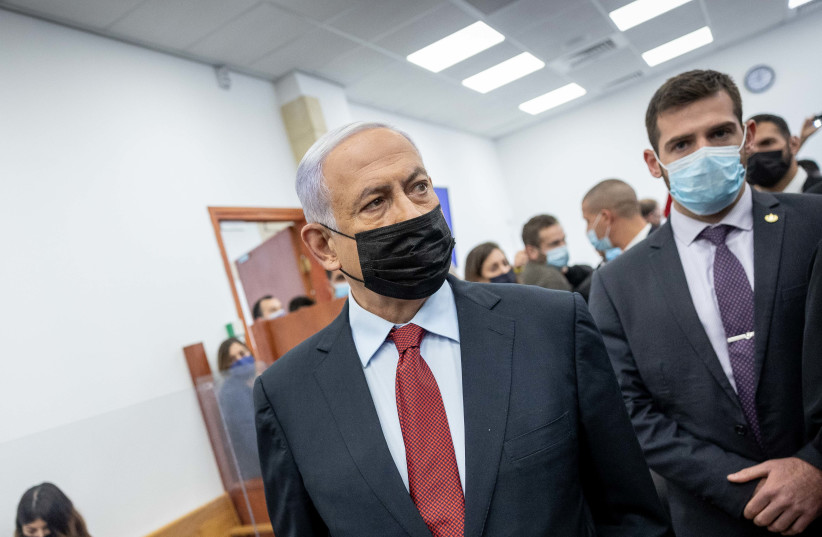Case 4000 in the public corruption trial of former prime minister Benjamin Netanyahu continued on Wednesday before the Jerusalem District Court with the prosecution accusing a key state witness of constantly taking Netanyahu’s side as the defense cross-examined him for a second day.
In one exchange, prosecutor Yehudit Tirosh suggested that former Netanyahu campaign chief and communications ministry director-general Shlomo Filber was “happy to lovingly adopt any narrative,” of Netanyahu.
Responding, defense lawyer Jacques Chen said, “He has a strange way of showing it,” referencing being a state’s witness, at least technically.
The exchange happened after Filber said that it was possible that some of the allegations he made against Netanyahu came from his reading leaks from the media, which were then garbled in his head into seeming like his own experience.
This would help Netanyahu’s defense efforts because he could claim that Filber’s allegations are neither authentic nor firsthand.

Despite the problems that Filber is creating for the prosecution, there was no sign from the prosecution that they will soon announce he had violated his immunity deal to testify for them as a state’s witness.
That said, theoretically, the prosecution could wait until the verdict has been given in the Netanyahu case to decide to try to go after Filber (though this late-game scenario is unlikely.)
Another issue that Filber and the defense may have created for the prosecution is whether the key meeting he allegedly had with Netanyahu could have taken place in the week that the prosecution says.
According to Netanyahu's defense lawyer Boaz Ben Tzur, his team will present evidence soon that Netanyahu was not in the specific office where Filber said they met.
During the week when the meeting allegedly took place, if the defense makes this claim, the prosecution likely will try to argue that the exact date of the meeting is less important than the fact that it took place and that Netanyahu gave key instructions to Filber regarding the alleged media bribery scheme.
Filbert also gave mixed testimony about the role of ministry official Haran Levaot.
Levaot had opposed the Bezeq-YES merger unless Bezeq accepted certain price reforms.
Previously, the prosecution had Filber testify that he pressured or coaxed Levaot and other ministry officials into approving the merger without conditions.
However, on Wednesday the defense was able to get Filber to testify that it was possible that Levaot dropped conditions for the merger on his own.
That said, one defense narrative was that Levaot possibly dropped his opposition because he believed Filber would approve the merger anyway.
This could still support the prosecution narrative.
Along with former top Netanyahu aide turned state’s witness Nir Hefetz who previously testified, Filber has been one of the prosecution’s two main witnesses for Case 4000, the Bezeq-Walla Affair.
If Hefetz provided the prosecution’s narrative for allegations against Netanyahu on the Walla side of the case, over around three weeks starting on March 23 Filber closed the circle by testifying in favor of the prosecution narrative against the former prime minister on the Bezeq side.
